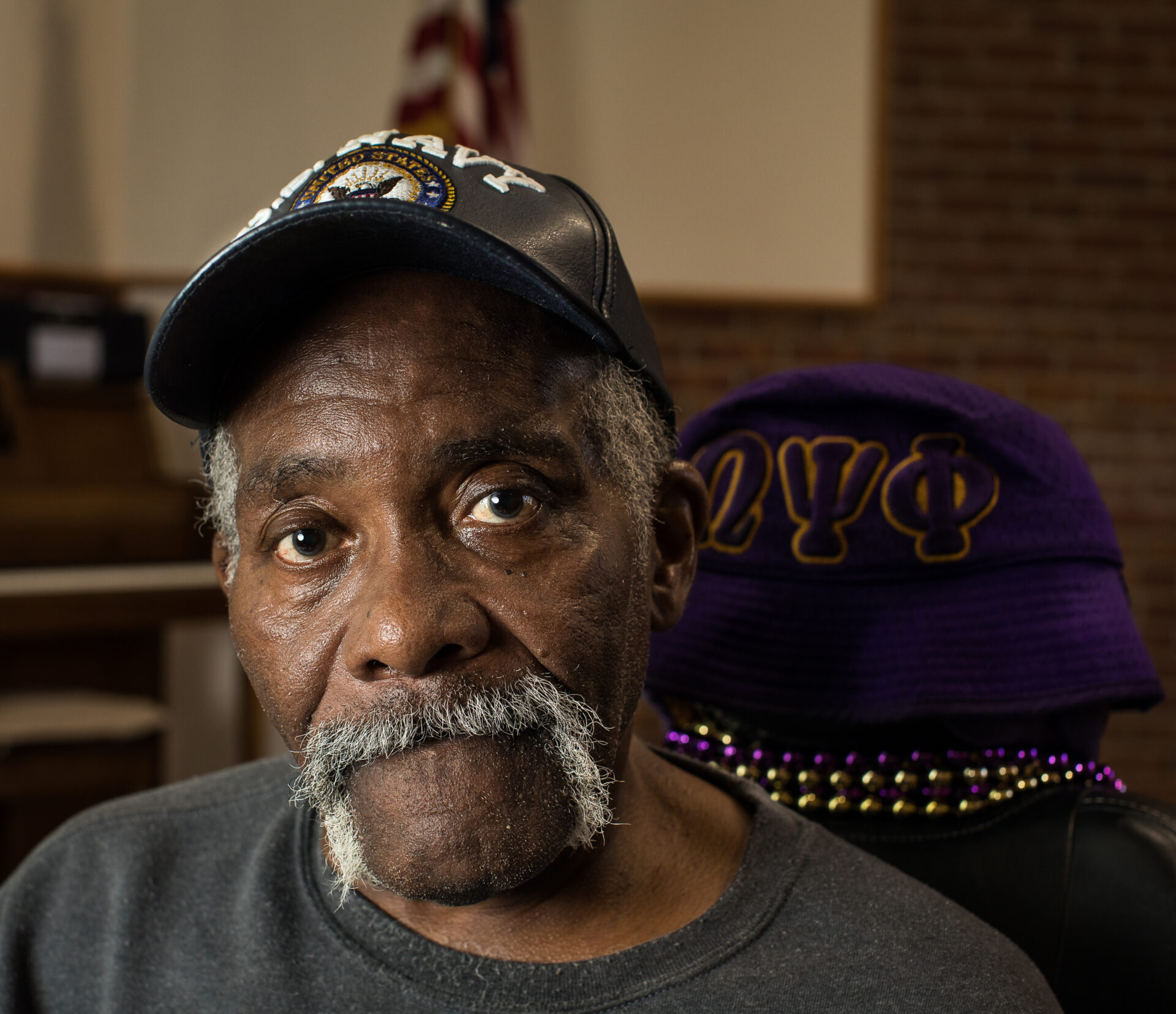Extras News
Mississippi Veteran Feature: Andrew Pates, “The Unorthodox Giver”
By Demarius Evans and Ben Rhoads
UM Honors College Students
*Editor’s Note: These features were produced as a “Profiles in Courage” series by Mark K. Dolan’s freshmen seminar class in the honors college at the University of Mississippi. They were originally published in Circle and Square magazine, produced by Samir “Mr. Magazine™” Husni’s Magazine Innovation Center students.
Andrew Pates was in a kitchen onboard the aircraft carrier Kitty Hawk making a ham and cheese sandwich with mayonnaise, when an explosion occurred and he lost consciousness.

“When you go through hell, you know there’s a heaven,” says Andrew Pates, 68. Photo by Mark K. Dolan.
When he came to, he heard the cries of his friends and the banging of metal against metal. Engines had exploded, and his commanding officer ordered the hatch closed to Machine Room No. 1, sealing off the fire.
Six people were killed and 38 injured in that fire, which occurred while the ship was in the Pacific, about 700 miles east of the Philippines.
“They sacrificed those guys down there. I was supposed to be down there, too. And I would have been down there,” Pates says, staring at a tile floor. “I don’t know.”
The smell of burning hair, burning flesh, and smelling salt, which was placed under his nose to wake him up after the explosion, all trigger Pates’ post-traumatic stress disorder.
“War is so unnatural,” Pates says, reliving the experience. “Six of my friends died that day.”
A lieutenant ordered him to put his friends’ bodies in bags, but he refused because he was in shock.
“When you go through hell, you know there’s a heaven,” says Pates, 68.
He faced struggles after the service. Pates was overlooked for a job as the director of a correctional library. When he tried to get the job, they froze it for close to four years. Even though he was the only one of the three applicants and had gone to law school, he was overlooked, he believes, because the other two applicants were white and he was not.
Pates shrugs it off, laughing. “Craziest white folks I have ever seen.”
His post-traumatic stress disorder was a big weight in his life, and he briefly turned to alcohol and drugs to lessen his pain. But he quickly sought help before these habits became too ingrained and was able to stay clean and sober.
Through it all, Pates never let anything keep him from living a life of fulfillment. His passion was teaching. His time spent at Coahoma Community College and Texas Christian University molded him into a giver.
He taught prisoners how to write writs so they could appeal their cases in court. He taught his friends how to write poetry for their girlfriends. He taught middle school for many years.
No matter who he was teaching, Pates taught his pupils to love learning and showed how much he cared about them.
“I would always look them in the eyes and tell them I love them. I let them see that I have a personality. I told them everyone makes mistakes.”
Whatever situation he was in, he always used his gift of teaching to shine some light into people’s lives. He provided hope during tough times for prisoners in jail, his friends onboard the Kitty Hawk, and the kids in his class who may have had a rough life at home. He attended law school in California for a time, and he even worked for the Salvation Army.
Pates’ story is one of selflessness and optimism. Even during the Vietnam War, he found ways to make life a little more doable, a little less horrific.
Then, after the war, he was able to appreciate the situation he was in, which encouraged him to help others even more through teaching and mentoring.
Pates has his own story, but his story involves more than just himself. It involves all the lives he touched before, during, and after serving in Vietnam.
Because of this, his story is more like that of his friends and family, his students, and those prisoners he worked with.
“Everybody has a history, H-I-S-T-O-R-Y, and you too have a history,” he says.





























